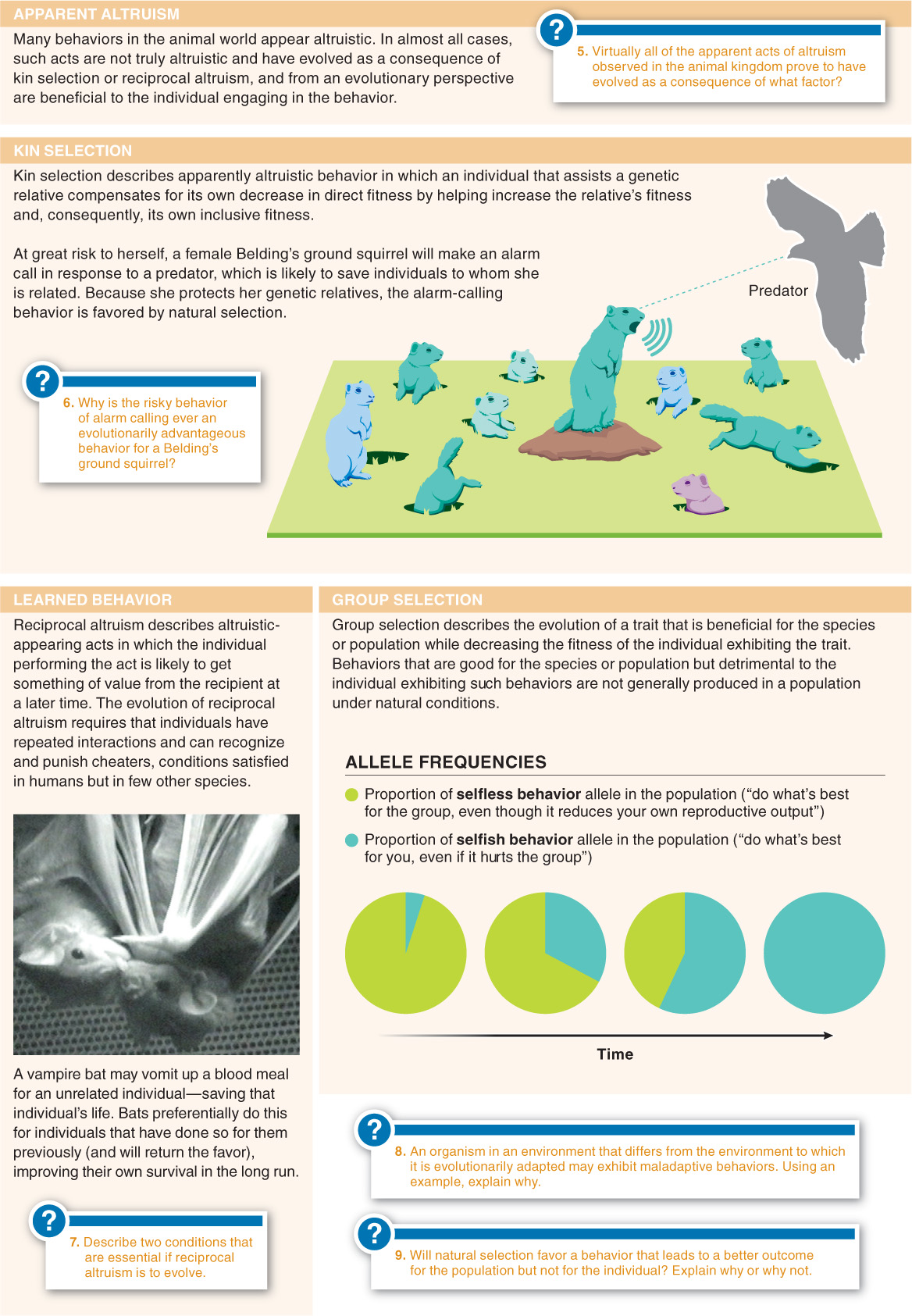9.5–9.9
9.5–Cooperation, selfishness, and altruism can be better understood with an evolutionary approach.
Many behaviors in the animal world that appear to be altruistic behaviors can be explained.

Q
In Belding’s ground squirrels, why are females much more likely than males to make alarm calls?
- a) Belding’s ground squirrels have a sex ratio that is biased toward females.
- b) Females invest more in food storage, so they are more likely to lose their lives or their food if a predator attacks.
- c) Belding’s ground squirrels have a sex ratio that is biased toward males.
- d) Females tend to remain in the area where they were born, so the females that call are warning their own kin.
- e) Males forage alone, so their alarm calls would be useless.

The genetic contribution of an individual to subsequent generations through its own offspring and through it influence on the survival of other relatives is:
- a) individual fitness.
- b) inclusive fitness.
- c) altruism.
- d) inclusive altruism.
- e) the protector effect.

Vampire bats:
- a) sometimes regurgitate blood into the mouth of another bat that is close to starving, but the likelihood of this is a function of whether the individuals are genetically related.
- b) are one of the few animal species that exhibit kin selection.
- c) sometimes regurgitate blood into the mouth of an unrelated bat that is close to starving.
- d) exhibit reciprocal altruism but not kin selection.
- e) There are no such things as vampire bats; they’re found only in a Dracula novel.

Altruistic behavior in animals may result from kin selection, a process in which:
- a) genes promote the survival of copies of themselves when behaviors by animals possessing those genes assist other animals that share those genes.
- b) aggression within sexes increases the survival and reproduction of the fittest individuals.
- c) companionship is advantageous to animals because, in the future, they can recognize and help individuals that have helped them.
- d) aggression between the sexes increases the survival and reproduction of the fittest individuals.
- e) companionship is advantageous to animals because, in the future, they can recognize individuals that have helped them and request help once again.

402